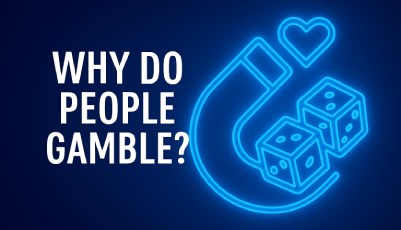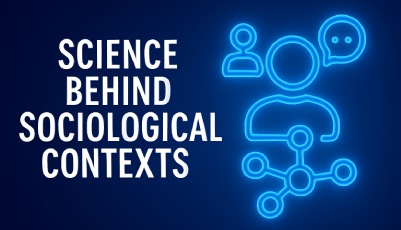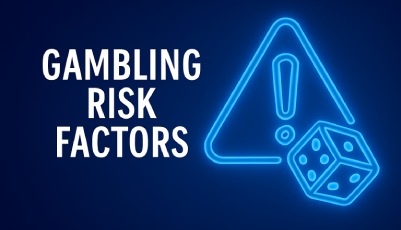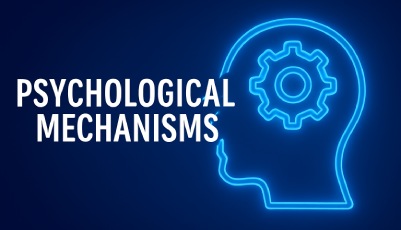What is Motivation?

If you have ever wondered why people engage in certain tasks or what enables them to keep at the tasks, the answer lies in motivation. As Urhahne and Wijnia (2023) explain, this drive can result from internal factors such as personal values or from external factors such as the expectation of a reward. So, does motivation play a role in the progression of gambling?
How Does Motivation Affect Gambling Progression?
In reviewing studies conducted on motivation and gambling progression since 2000, we were able to find the following patterns regarding how motivation affects gambling progression.
It determines why people start gambling.
According to studies, people start placing wagers for different reasons, which can be internal or external. For example, Binde (2009) asserts that many people who engage in gambling are drawn to wagers out of curiosity or peer influence. At the same time, according to Komoto (2024), many people have been drawn to gambling because they think they can make money out of it. Moreover, with the media painting gambling as a glamorous and fun activity, many people have become curious about it, thus placing wagers. These studies highlight the wide variation in motivators.
It determines why people keep gambling.
Motivations attract people to gambling in the first place. But they also play a role in why people keep placing wagers. What’s more, they are subject to change over time. According to Rodriguez et al. (2015), some gamblers who start playing for fun end up playing because it helps them enjoy stress relief, thus changing their motivations. Komoto (2024) adds to this by introducing the addictiveness of gambling. Some players develop gambling habits that soon become their motivators to keep playing because they start experiencing cravings. As such, for such players, gambling is no longer about what attracted them in the first place but is instead a way to avoid the discomfort of the cravings.
It determines whether gambling becomes problematic.
Not all gamblers develop problem gambling habits. However, for those whose motivations become less about fun and more about avoiding uncomfortable feelings or forming their identities, habit formation is likely. As Blaszczynski & Nower (2002) explain, such gamblers may find themselves playing out of compulsion. To add to this, some gamblers develop cognitive distortions that affect their ability to make objective decisions. Komoto (2024) explains this as irrational thoughts that push the gamblers to believe that they have control over the outcomes. But whether one is gambling out of compulsion or cognitive distortions, such patterns are likely to result in problem gambling, which has been shown to have negative effects on the gamblers and society as a whole.
“An alternative and more productive approach is to acknowledge the existence of specific subtypes of gamblers, each influenced by different factors yet displaying similar phenomenological features.” Blaszczynski, A., & Nower, L. (2002).
Can Motivations Be Problematic?
Studies have shown that the differences in gambling motivations also explain why some gamblers develop problem gambling while others do not. The categories are as follows:
a. Non-Autonomous Motivations:
These motivations do not come from internal goals and instead, they tie to external factors, as follows:
Social Status
Some people, especially younger adults, engage in gambling to get recognition from others. The more they win or take risks, the more credit they get, and this boosts their self-esteem, which pushes them to gamble even more (Komoto, 2024).
Amotivation
Other people, especially older adults, gamble without a clear purpose and often do so out of loneliness, boredom, stressors, and other related motivators. Since this fills up their time, Komoto (2024) explains that it can result in repetitive behavior that can lead to addiction.
b. Autonomous Motivations:
These motivations come from internal motivators, as follows:
The Thrill of a Challenge
Some gamblers enjoy the mental challenges and adrenaline rushes from games of skill or sports betting. According to Rodriguez et al. (2015), such gamblers are often able to set clear boundaries on when and how to gamble.
The Chance of Connection
People who bet with friends see gambling as a way to socialize and unwind, such as attending a casino night, which helps them connect with others.
According to studies, non-autonomous motivations are more likely to result in problem gambling habits compared to autonomous motivators.
“Consequently, the gambling motivations of older adults may be simpler and more uncomplicated than that of younger people.” Yasunobu Kumoto (2024).
Examples of Case Studies
A Komoto (2024) study, which included 160 adults aged 20 to 60, investigated how motivation types affected gambling progression. It found that those aged under 30 were often driven by social status while those over 30 often had amotivation as their motivator. What’s more, those who engaged in autonomous motivations were less likely to undergo gambling progression. In a study by Kim et al. (2017) that focused on why young adults gambled, the researchers recruited 21 young adults aged 18 to 24. Through focus groups and thematic analyses, they found that peer influence was a key gambling motivator. Additionally, once the adults joined the sites, they often progressed in their gambling habits due to boredom relief, perceived skills, and excitement.
Takeaway
Motivations not only play a part in why people start gambling, but they also shape their gambling habits and could pave the way for problem gambling habits. It is thus important for gamblers to be aware of why they engage in gambling and to take measures to avoid progression that could affect them negatively. At the same time, intervention strategies need to address people’s underlying motivations for them to get to the root of the problems.
FAQs
People start gambling for different reasons, which can be internal (such as seeking connections) or external (such as seeking social credit).
Yes. Once people start gambling, it’s not uncommon for their motivations to change, especially in those with problem gambling patterns.
Not quite. Studies have shown that non-autonomous motivations are more likely to have negative consequences compared to autonomous ones, which are not strongly linked with problem gambling.
References
- Binde, P. (2009). Gambling Motivation and Involvement: A Review of Social Science Research. Swedish National Institute of Public Health. https://ongambling.org/wp-content/uploads/2020/02/binde-gambling-motivation-review.pdf
- Blaszczynski, A., & Nower, L. (2002). A Pathways Model of Problem and Pathological Gambling. Addiction, 97(5), 487–499. https://gcphn.org.au/wp-content/uploads/2020/06/A-Pathways-Model-of-Problem-and-Pathological-Gambling-Blaszczynski-and-Nower-2002.pdf
- Kim, H. S., Wohl, M. J. A., Gupta, R., & Derevensky, J. L. (2017). Why do young adults gamble online? A qualitative study of motivations to transition from social casino games to online gambling. Asian Journal of Gambling Issues and Public Health, 7(6). https://doi.org/10.1186/s40405-017-0025-4
- Komoto, Y. (2024). Role of Motivation in the Progression of Problem Gambling: A Comparison of Early and Late Adults. Journal of Gambling Studies, 41, 299–313. https://link.springer.com/article/10.1007/s10899-024-10331-5
- Rodriguez, L. M., Neighbors, C., Rinker, D. V., & Tackett, J. L. (2015). Motivational Profiles of Gambling Behavior: Self-Determination Theory, Gambling Motives, and Gambling Behavior. Journal of Gambling Studies, 31(4), 1597–1615. https://www.greo.ca/Modules/EvidenceCentre/files/Rodriguez%20et%20al%20%282015%29_Motivational%20profiles%20of%20gambling%20behaviour%20self-determination%20theory%20gambling%20motives%20and%20gambling%20behaviour_Final.pdf
- Urhahne, D., & Wijnia, L. (2023). Theories of Motivation in Education: an Integrative Framework. Educational Psychology Review, 35, Article 45. https://doi.org/10.1007/s10648-023-09767-9




